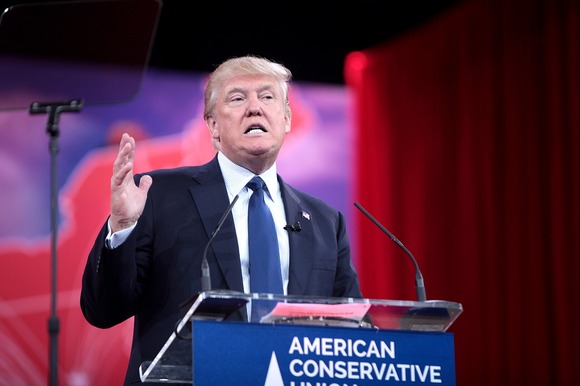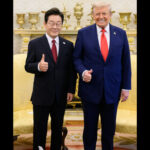Former U.S. President Donald Trump has threatened to impose tougher sanctions on Russia following its most intense aerial bombardment of Ukraine since the war began.
Sunday’s strikes killed four people, including a mother and her baby, and for the first time damaged Ukraine’s main government building in Kyiv. Ukrainian officials reported that the attack involved at least 810 drones and 13 missiles, sparking renewed calls for stronger Western action against Russian President Vladimir Putin.
In Moscow, Kremlin spokesman Dmitry Peskov insisted on Monday that no sanctions would ever succeed in forcing Russia to “change the consistent position that our president has repeatedly spoken about.” Speaking after the strikes, Trump told reporters he was “not happy with the whole situation.”
Although Trump has previously warned of harsher penalties, he has not acted when Putin ignored earlier ultimatums. On Sunday, when asked if he was ready to move to a “second phase” of measures against Moscow, Trump replied: “Yeah, I am,” but provided no further details.
His comments came after U.S. Treasury Secretary Scott Bessent said Washington was prepared to escalate economic pressure, but required stronger European cooperation. In an interview with NBC, Bessent argued that if EU states imposed tougher sanctions and secondary tariffs on countries still purchasing Russian oil, “the Russian economy will be in total collapse, and that will bring President Putin to the table.”
He added: “We are in a race now between how long can the Ukrainian military hold up, versus how long can the Russian economy hold up.”
So far, Washington’s most severe measure has been a 50% tariff on imports from India, introduced last month in response to New Delhi’s ongoing imports of Russian oil. Trump has suggested extending such secondary sanctions to other nations, though he has yet to implement them.
Trump also revealed that European leaders were expected to arrive in Washington this week to discuss possible steps to end the war. “Certain European leaders are coming over to our country on Monday or Tuesday individually,” he said, without naming them. He also suggested he would be speaking directly with Putin “in the next couple of days.”
In a separate interview with ABC News, Ukrainian President Volodymyr Zelensky urged European nations to completely stop buying Russian energy. “We have to stop [buying] any kind of energy from Russia, and by the way, anything, any deals with Russia. We can’t have any deals if we want to stop them,” he said. Zelensky welcomed Trump’s tariff strategy, calling it “the right idea” to cut off Moscow’s revenue streams.
Since launching its full-scale invasion in March 2022, Russia has earned an estimated $985 billion (£729 billion) from oil and gas exports, according to the Centre for Research on Energy and Clean Air. China and India remain Moscow’s biggest buyers, while the European Union has significantly reduced but not completely halted purchases. Brussels has pledged to phase out all Russian energy imports by 2027.
Despite the sanctions regime, Russia is attempting to diversify its markets. During a meeting in Beijing last week, Moscow announced plans to increase gas supplies to China. Meanwhile, OPEC+, the oil-producing bloc that includes Russia, agreed to boost production, a move that could push down global oil prices and complicate Western attempts to squeeze Moscow’s finances.






